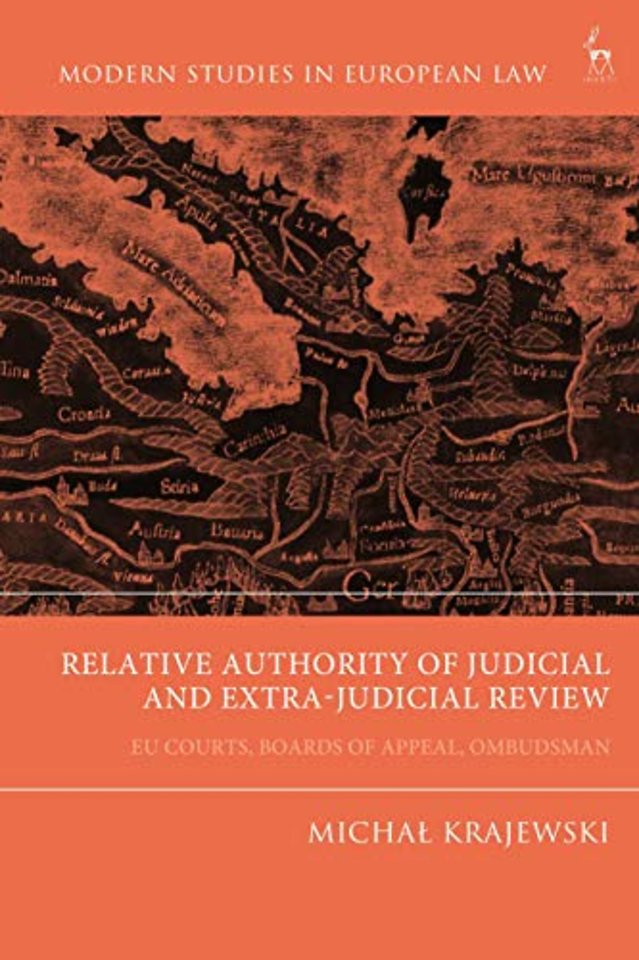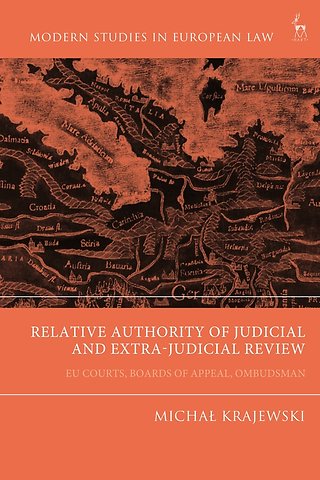



Michal Krajewski is Postdoctoral Research Fellow at the University of Copenhagen, Denmark.
Meer over Michal KrajewskiRelative Authority of Judicial and Extra-Judicial Review
EU Courts, Boards of Appeal, Ombudsman
Samenvatting
Do independent boards of appeal set up in some EU agencies and the European Ombudsman compensate for the shortcomings of EU Courts?
This book examines the operation of EU judicial and extra-judicial review mechanisms. It confronts the formal legal rules with evolving practices, relying on rich statistical data and internal documents. It covers detailed institutional arrangements, the standard of review, the types of cases and litigants, and the activity of the parties in the process. It makes visible the diverse but complementary ways in which the mechanisms enhance the authority of EU legal acts and processes. It also reveals that scarce resources and imprecise rules restrict the scope of review and hinder independent empirical investigations. Finally, it casts light on how a differentiated system of judicial and extra-judicial review can accommodate various kinds of technical and political discretion exercised by EU institutions and bodies.
Table Of Contents
Specificaties
Inhoudsopgave
I. Overview of the Book
II. Beyond the Judicial Paradigm
III. Putting Formal Labels Aside
IV. The Book's Structure
2. The Shortcomings of EU Judicial Review
I. Limited Review of Uncertainty
II. Deficient Judicial Expertise and Procedural Tools
III. Restrictive Access
IV. The Risks of Judicial Overload and Overreach
V. Conclusion
3. The Bits and Pieces of Review Mechanisms
I. A Change in the Methodological Approach
II. The Models of Review Mechanisms
III. Independence, Powers, Accessibility, Activity
IV. Conclusion
4. Judicial Review: Justice and Efficiency
I. Judicial Independence: Safeguards, Resources and Expertise
II. The Reach of Judicial Power
III. Restrictive Access and the Court's Administrative-Economic Profile
IV. The Value and Cost of Procedural Activity
V. Conclusion
5. Administrative Review: Cheaper, Quicker and More Thorough?
I. Reconciling Independence and Proximity
II. The Reach of Law and Science
III. The Long Shadow of Plaumann
IV. Procedural Activity in an Administrative Trial
V. Conclusion
6. Ombuds-review: Justice without Binding Powers
I. Independence and Political Neutrality
II. Taking the Ombudsman Seriously
III. A Public Interest Venue
IV. Towards Greater Procedural Discretion
V. Conclusion
7. Conclusions
I. The Assets and Shortcomings of Extra-judicial Review
II. The Rule of Law and Epistemic Uncertainty
III. The Political Design of Judicial and Extra-judicial Architecture
IV. Protecting the Courts from Uncertainty
Anderen die dit boek kochten, kochten ook
Net verschenen
Rubrieken
- aanbestedingsrecht
- aansprakelijkheids- en verzekeringsrecht
- accountancy
- algemeen juridisch
- arbeidsrecht
- bank- en effectenrecht
- bestuursrecht
- bouwrecht
- burgerlijk recht en procesrecht
- europees-internationaal recht
- fiscaal recht
- gezondheidsrecht
- insolventierecht
- intellectuele eigendom en ict-recht
- management
- mens en maatschappij
- milieu- en omgevingsrecht
- notarieel recht
- ondernemingsrecht
- pensioenrecht
- personen- en familierecht
- sociale zekerheidsrecht
- staatsrecht
- strafrecht en criminologie
- vastgoed- en huurrecht
- vreemdelingenrecht





